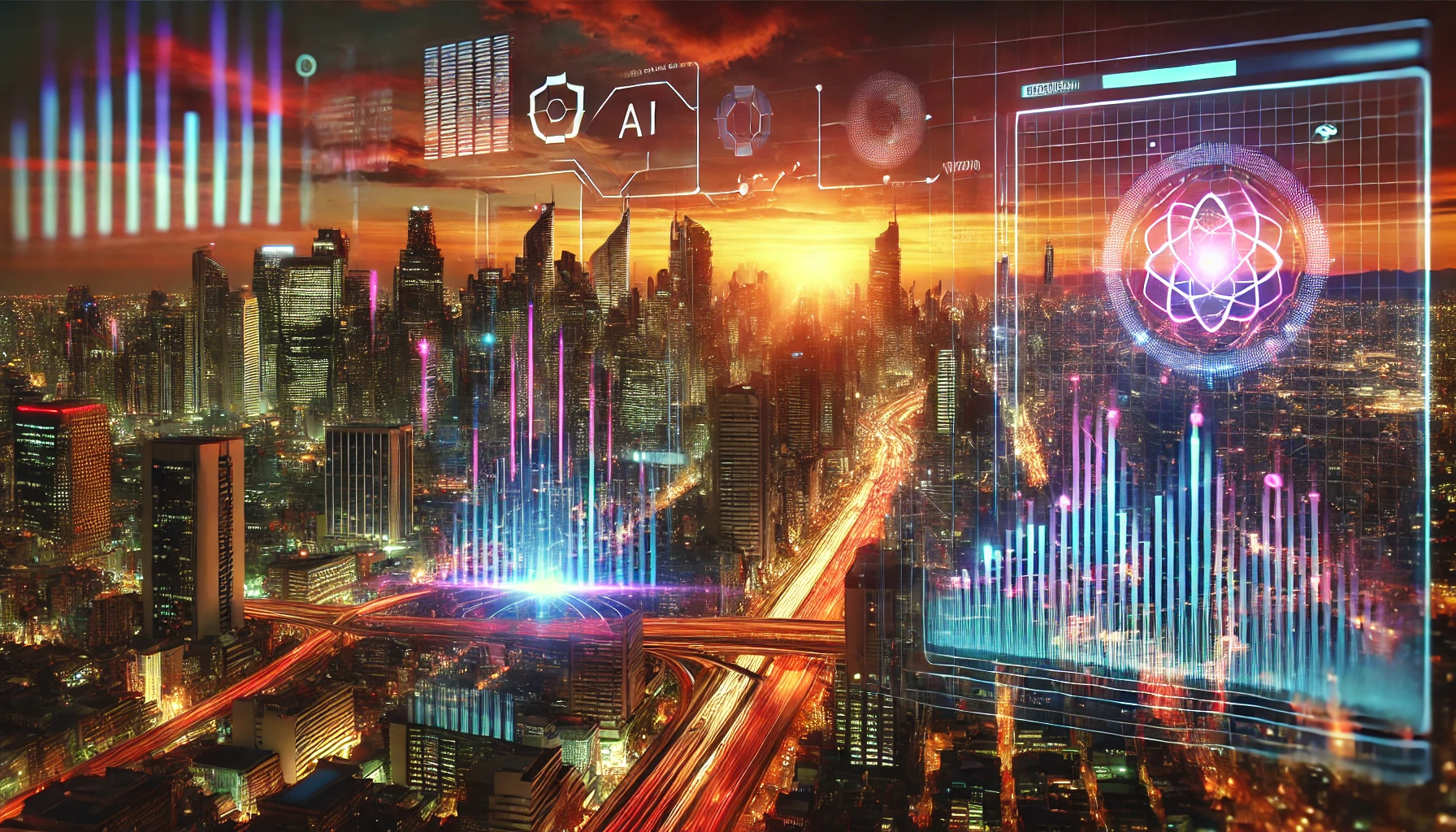So, AI is about to either revolutionize our world or turn it into a “Terminator” sequel. But hey, what’s new? Let’s dive into the latest from Epoch AI, the research initiative that's been peering into the crystal ball of machine learning, and their predictions about the future of artificial intelligence. Spoiler alert: they’ve got some juicy tidbits that could make Wall Street either pop the champagne or down a bottle of Pepto-Bismol.
The AI Hype Is Real, and It’s Here to Stay
First off, if you thought the AI hype was just a fleeting fad, think again. Epoch AI’s recent report doesn’t just keep the hype alive—it feeds it a steady diet of raw data and wild predictions. Now, I’m not talking about your usual “AI will take over the world” rhetoric. I’m talking about real, conservative estimates that suggest we’re in for a rollercoaster ride over the next six years, straight through to 2030.
One of the biggest jaw-droppers from the report? The potential economic returns of scaling beyond GPT-4 to a GPT-6 equivalent. According to Epoch AI, we’re looking at models that could generate over $2 billion in revenue within their first year of release. Yeah, you read that right—billion with a “B.” And that’s just the beginning.
Now, let’s break this down with an analogy. Imagine you’re at a party, and there’s this guy—let’s call him AI—who everyone’s talking about. Some say he’s going to revolutionize the party scene, others think he’s just a fad. But while everyone’s arguing, AI is quietly making connections, learning the ins and outs of social dynamics, and by the end of the night, he’s not just a guest—he’s the host, the DJ, and the guy everyone’s trying to be friends with. That’s where we’re headed with AI, based on Epoch AI’s report.
$60 Trillion: The Magic Number
Now, here’s where things get interesting. The report suggests that the entire global economic output is around $60 trillion per year. That’s a lot of zeros. And if AI can automate even a tiny portion of that, the financial impact could be staggering. We’re talking about potential economic value reaching $20 billion or more—just from AI’s contributions. Wall Street might want to pay attention, because the future isn’t just about dividends; it’s about dominating entire sectors of the economy.
But here’s the kicker: AI isn’t just going to be a helpful tool. It’s going to be an agent. You know, like in “The Matrix,” but less evil (hopefully). Future AI systems won’t need humans to prompt them—they’ll operate independently, manipulating browser windows, running virtual machines, and generally doing everything short of making you coffee in the morning (although, give it time).
The $20 Billion Question
So, what happens when GPT-5 drops? According to the report, GPT-5 could generate $20 billion in revenue within its first year of release. That’s more than most Hollywood blockbusters—combined. And if that’s the case, what will GPT-6 do? The possibilities are mind-boggling, and the economic implications are just starting to sink in.
Now, let’s get one thing straight: Wall Street is scratching its head, wondering if AI will ever make money. Spoiler alert: it already is, and it’s only going to get bigger. Sure, there’s skepticism—after all, AI isn’t exactly known for its fiscal responsibility. But as Sam Altman, the CEO of OpenAI, has pointed out, the potential returns are too big to ignore. We’re talking about trillion-dollar valuations and investments that could reshape entire industries.
The AI Arms Race
Now, let’s talk about the future. Epoch AI’s report dives deep into what AI could look like by 2030. And let me tell you, it’s not for the faint of heart. The idea is that AI models could scale up by 10,000 times—yes, you read that correctly—by the end of the decade. This means we could see models with 10,000 times the compute power of today’s systems. Imagine what that could do to industries like finance, healthcare, and even entertainment.
And speaking of industries, companies like Meta, Amazon, and Google are already gearing up for the AI arms race. Meta, for instance, just bought the rights to a 350-megawatt solar farm in Missouri and a 300-megawatt solar farm in Arizona. Why? Because they know that AI’s future isn’t just about algorithms—it’s about power. Lots and lots of power.
The Data Dilemma
But it’s not all sunshine and rainbows. There’s a looming issue on the horizon: the data wall. As AI models get bigger and more powerful, they’re going to need more data to train on. And guess what? We might run out of data. Epoch AI estimates that we could hit this data wall in about five years. But don’t panic just yet. The report also suggests that synthetic data generation and multimodal data could help mitigate this issue, allowing AI to continue its meteoric rise.
The Bottom Line
So, where does this leave us? If you’re Wall Street, you might want to start paying closer attention to AI. The investments being made today are laying the groundwork for a future that could see AI generating trillions of dollars in economic value. And if you’re anyone else, well, buckle up. The next few years are going to be a wild ride.
In conclusion, Epoch AI’s report isn’t just a glimpse into the future—it’s a roadmap. A roadmap that shows us just how far AI can go and how much it can change the world. And if even half of their predictions come true, we’re in for one heck of a ride.
























Post Comment
You must be logged in to post a comment.